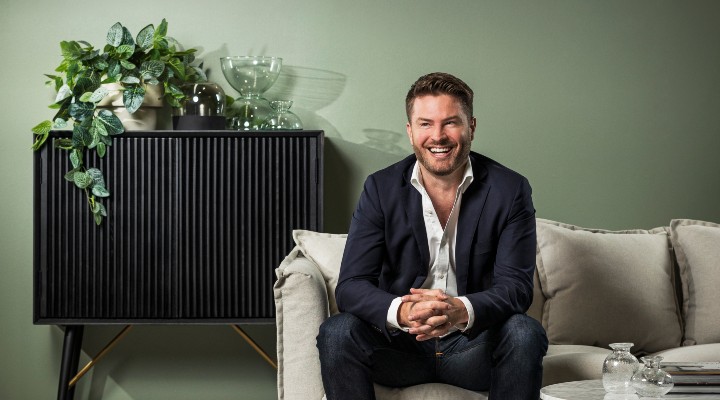Becoming a billion-dollar business is no easy feat, just ask Kylie Jenner or Rhianna. However, Temple & Webster plans to join the club by investing in technology to scale and gain a competitive advantage. The Australian online furniture retailer is proof that you need to spend money to make money, and its investments in artificial intelligence (AI) development and new marketing channels are primed to keep the business on track. Even after significant investments in these areas, Temple &
& Webster has a positive profit and revenue growth trajectory.
Accumulating no debt and finishing FY24 with $116 million cash on hand, the decline in net profit from $8.3 million in FY23 to $1.8 million in FY24 is not likely to trip up the company’s CEO Mark Coulter.
Temple & Webster reported a record $498 million revenue for FY24, up 26 per cent from FY23, which it attributed to an aggressive marketing strategy across its developed and proven digital channels, alongside a venture onto the small screen – TV, that is, rather than the touchscreen of a smartphone.
Implementing AI
“We’ve invested multiple millions of dollars into AI and data and that investment has already paid itself back,” Coulter told Inside Retail.
The business has already deployed its own internally developed AI solutions to power multiple touch points, including product recommendations, on-page content, search, and shipping cost estimates.
“In a function like [customer] care, 40 per cent of our contact is now driven by AI, and that’s both pre- and post-sales,” Coulter said.
“Those initiatives in aggregate have driven more than 10 per cent conversion rate improvements and, on an annualised basis, more than $4 million in cost savings a year.”
Coulter was coy to disclose the size of the Temple & Webster AI team, but he said that “we think it’s one of the biggest teams in this space, in our category”..
“There’s not hundreds of AI experts in Australia, because it’s so new and they don’t exist,” Coulter said. When hiring for this team, the focus was on aptitudes as opposed to experience.
“We look for people who are technical, with an openness to try new things,” Coulter said. “That’s what we find you need in AI, it’s more focused on can you get in there, think of a solution, put it into place and see what happens?” Coulter said.
Some of the questions he suggested companies should ask prospective AI hires include: are you technical? Do you have an interest in coming up with innovative solutions? Are you willing to try these new AI solutions, as opposed to more traditional data science models and machine learning? Are you willing to think outside the box?
For Coulter, competitive advantage is the ROI he is seeking right now from his multimillion-dollar investments in AI, not commercialisation.
This can also be seen in CashRewards’ recent acquisition of Little Birdie.
But that is not to say he isn’t thinking about how Temple & Webster can commercialise its AI efforts beyond the business in the future.
“The hypothesis right now is, we’re an online retailer for furniture and homewares [with] a clear vision to make the home more beautiful one room at a time,” he said.
By commercialising AI, he said, “there could be advantages that we deploy to win in other adjacent categories or markets ourselves”.
“If we were to go international, maybe it’s one of the reasons why we think we could win in an overseas market, as opposed to just relying on our current capabilities,” Coulter said.
Going abroad
“I think in the next five years, you’ll see Temple & Webster operating overseas, as a company that successfully exported its proposition and is doing quite well internationally,” Coulter hinted.
“That will only be done when we feel confident there is no risk to our home market.
“We’ve done a review of the different markets and characteristics, but we’re very early in the thinking and it’s likely to change.
“As a founder I would love for Temple & Webster to be an Aussie success story, operating in other markets successfully, that will only be done when we feel confident that there is no risk to our home market,” Coulter finished.

